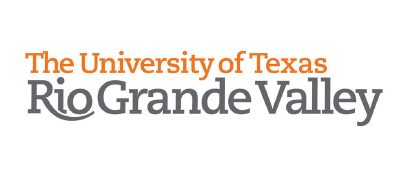EDINBURG — Over the next three years, the University of Texas Rio Grande Valley will be one of five UT System institutions to lead new efforts to help struggling local schools.
University of Texas officials announced the new partnership this week with the Texas Education Agency dubbed the UT System PreK-12 Turnaround Partnership. In it, a handful of UT institutions will receive grants aimed at supporting schools within their region that have been deemed as “Improvement Required” on state accountability ratings.
UTRGV is receiving $100,000 per year for the next three years to have the College of Education embedded at Juarez-Lincoln High School in La Joya school district. Funds were provided by the UT System Board of Regents.
“The schools that were identified were schools where students are having difficulty,” said Roberto Zamora, assistant professor at UTRGV’s department of organization and school leadership. “We are excited about the opportunity to partner with them because I think it’s learning both ways. We as the university learn what’s happening with schools and keep up to date, and we also help them learn from us.”
Juarez-Lincoln High School received the improvement required rating in 2016 when they failed to meet state standards in two out of four areas — student achievement and student progress. The campus, however, slightly improved their rating in these two areas in 2017, which allowed them to receive a “Met Standard” rating.
Now the challenge for the school is to maintain their efforts and continue improve their scores. This is where the partnership with UTRGV comes into play.
“They have some really neat initiatives that they started as a district,” Zamora said. “Our task is how to help them in leading and managing the change processes and taking a look at all of their things they are doing and prioritizing working with teachers.”
The primary methods for achieving this goal will be leadership development, teacher development and implementing management strategies. In order to provide the support needed, the idea is to make available all of the resources of the College of Education to the district.
“What we are expecting to see is people from across the college be able to assist the schools with the knowledge and skills, because we all have different areas of expertise,” Zamora said.
For the university, the benefit will come in the form of understanding what is happening in the classrooms for which they are preparing the next generation of teachers and school leaders.
“We are going to learn a great deal about what is it that we need to be doing to better prepare our teachers to enter our K-12 settings,” said Patricia McHatton, UTRGV executive vice president for academic affairs. “How is it that we can align our leadership programs so that our leaders are able to enter schools at whatever level of performance and be able to perform as a change agent and make sure that the kids are all achieving at the level we all know they can achieve?”
The idea is not to go into the school and start changing gears from the get go, she clarified, but to learn what strategies have worked for them in the past, and what haven’t, in order to work together to reinforce and implement successful methods.
Historically the college of education, which McHatton formerly led as a dean, has had similar partnerships with school districts, but the grant allowed them allocate a wider range of resources and delve deeper into the school, she said.
The university has already started collaborating with school district officials and the plan is to begin implementation this fall.
At the end of the three years, the goal is to come up with a plan that can be sustained over time in this school and perhaps even be replicated at other struggling schools not just in the Valley but across the nation.
“Out of the partnership there will more than likely be some resources that emerge. For example, professional development workshops, resources to support a teacher to meet the needs of students with disabilities,” McHatton said. “There will be derivables that come out of this partnership that will be able to be utilized across multiple settings while taking into account the fact that context matters and there will more than likely need to be some adjustments.”




